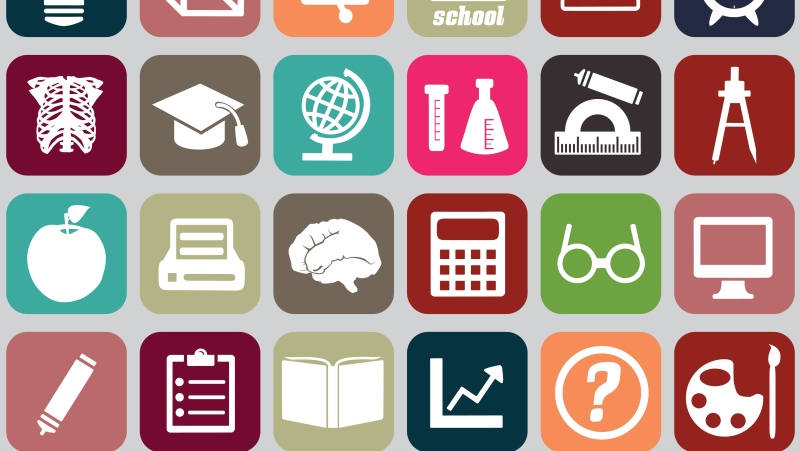
The Small Business Innovation Research Program (SBIR) at the Education Department’s Institute of Education Sciences (ED/IES) invested in eight education computer applications that would help teachers assess student abilities in math, science, reading, and special education.
“With the emergence of next-generation Web- and app-based assessments, students are now engaging in activities and games that measure knowledge and performance in real time and provide immediate results,” according to a blog post written by Edward Metz, program manager of the SBIR program at the ED/IES; Aadil Ginwala, assistant director of Education and Telecommunications Innovation at the White House Office of Science and Technology Policy; and Erik Martin, policy adviser at the OSTP.
The best learning apps allow students to tackle difficult challenges that coordinate with classroom activity by permitting teachers access to the data to see where further instruction is required, according to Metz, Ginwala, and Martin.
- Wuzzit Trouble
The math app Wuzzit Trouble by BrainQuake features puzzles that focus on number sense, algebra, problem solving, modeling, and data analysis.
“The kids do the math problems and they are learning to persist, and that, actually I think is an enormous national crisis in that children do not persist in mathematics,” said Hae-Sin Thomas, founder of Epic Middle School in Oakland, Calif.
BrainQuake will use the money from the ED to update Wuzzit Trouble to enable students to adjust the level of difficulty of problems on the app.
- StepWise
The algebra app StepWise uses Common Core State Standards (CCSS) to track students through each step of the problem, identify where the student went wrong, offer hints about the next step, and send data to teachers.
“As a teacher, not only can you see all the kids’ work, the report tells you a certain percentage of your students made this mistake,” said Patty Hill, a teacher at Kealing Middle School in Austin and StepWise developer.
StepWise is being modified for use in classroom instruction and as a replacement for unit assessments.
- Teachley Connect
Teachley Connect has a dashboard that includes math learning games that elementary school students can play to learn and test new skills. Teachers receive data from the app, which shows how each student is doing in order to improve classroom instruction.
- Ink-Blotter
The science app Ink-Blotter has a dashboard, which follows Next Generation Science Standards (NGSS), that sends teachers real-time data assessing how each middle or high school student is progressing during physical, life, and earth science labs.
“It really gave me a chance to moderate my big class of students,” said Anna Digby, teacher at LaCreole Middle School in Dallas, Ore. “So I was able to know almost instantly who was struggling and who wasn’t and provide the assistance necessary.”
- Eco
Eco is aligned with NGSS and allows many students to build an ecosystem to see how individual actions affect the well-being of the ecosystem. The students must use the resources available in their environment to build their ecosystem without damaging it. Students can propose laws over their environment to regulate hunting and logging, but they must agree with their other teammates and back up their arguments with scientific data from the app. Eco is adding teacher tools so that teachers will be able to track what their students are doing on the app.
- A2i
The reading app A2i assesses students’ proficiency in CCSS and National Assessment of Education and Progress (NAEP) Standards such as vocabulary, decoding, and comprehension.
“The A2i adapts based on student responses in real time, and can be used for ongoing progress monitoring or end-of-year assessments,” wrote Metz, Ginwala, and Martin. “A recent study found that through seven randomized controlled trials … students who used the A2i showed significantly increased decoding and reading comprehension compared to students in a control group.”
- iASK
iASK is a test that identifies why middle school students struggle with recognizing words. Students progress at their own pace through 24 tests, designed like games to assess their knowledge and notify teachers as to where intervention is needed.
- IvySCIP
IvySCIP is designed for teachers to track emotional and social learning needs of elementary school students diagnosed with High-Functioning Autism Spectrum Disorder. The data collected from the platform assists in developing Individualized Educational Programs (IEPs) and tracking student progress.
